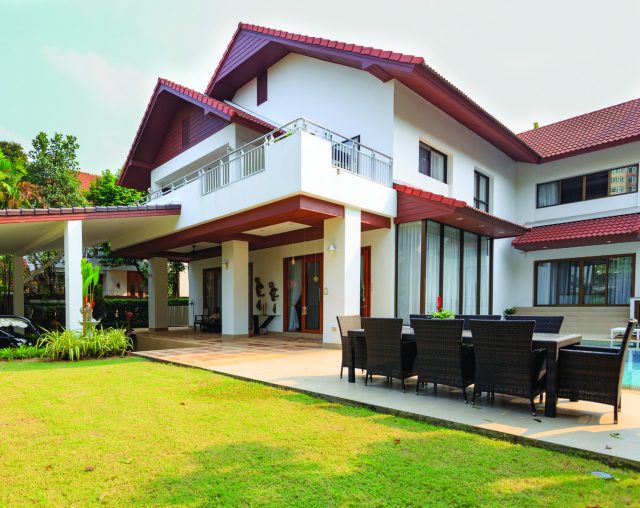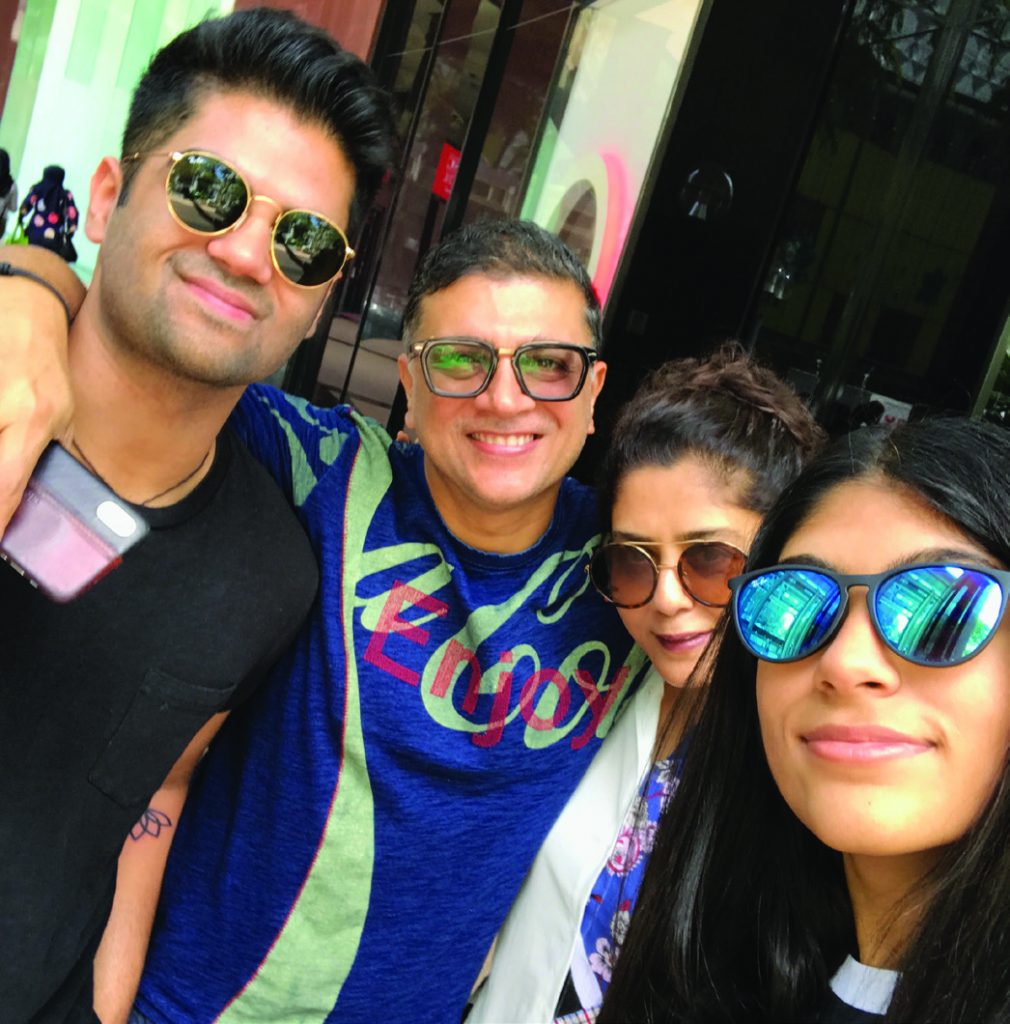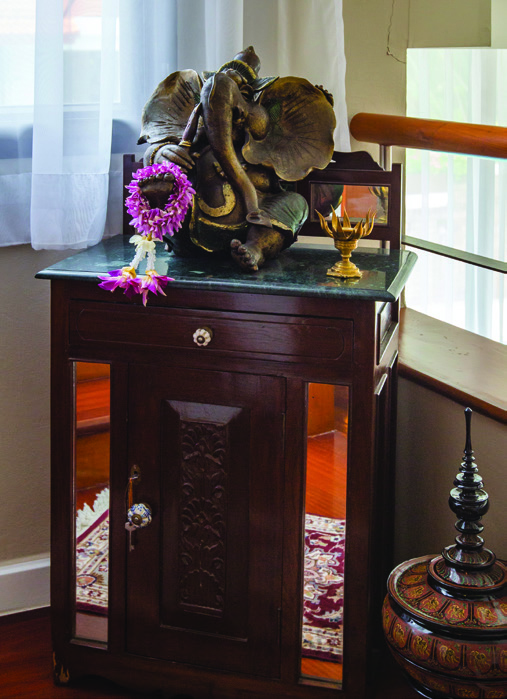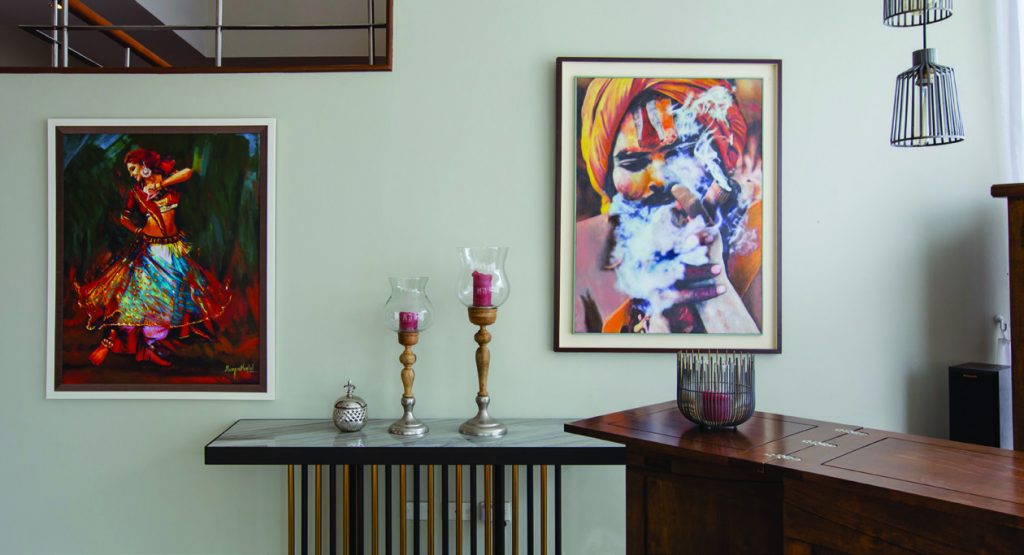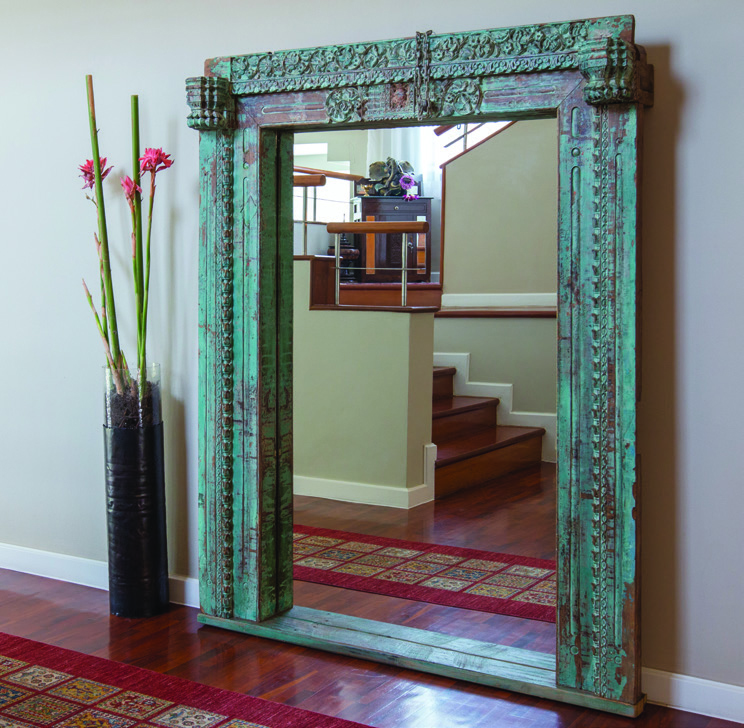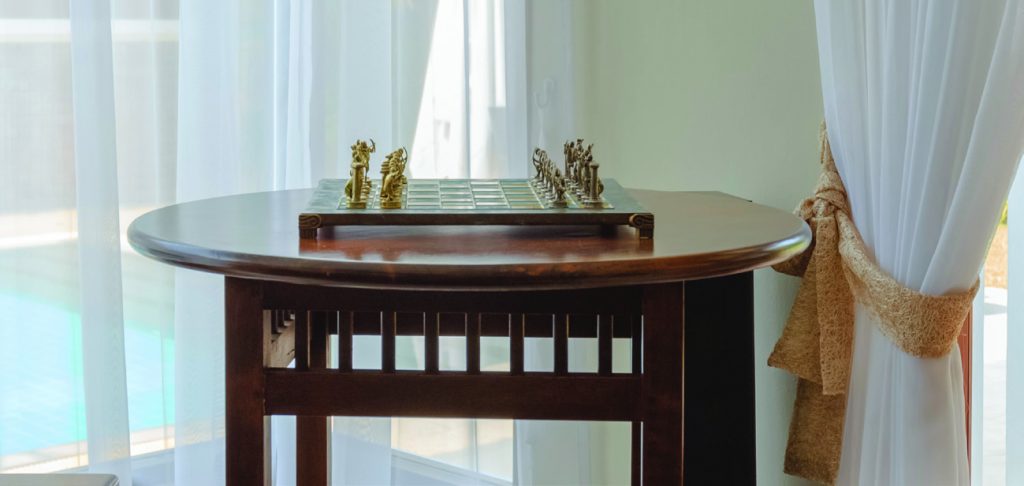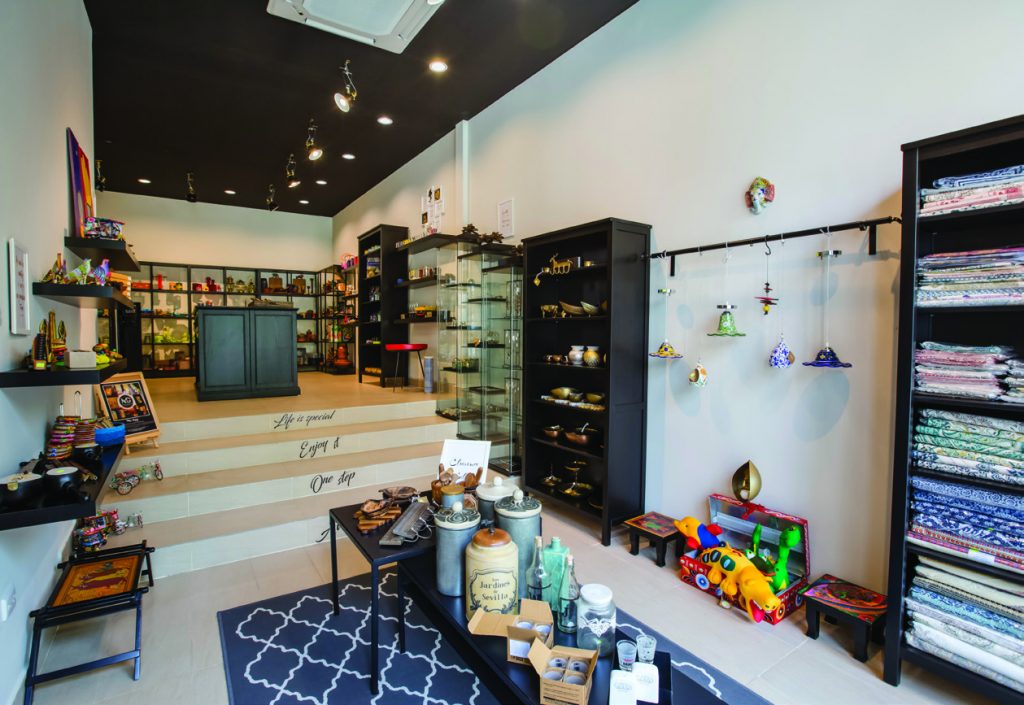The Mullick family welcomes you into their home, a tangible representation of their life journeys.
By Shruti Kothari
Situated right by a lake and nestled among verdant foliage, the Mullick family home in Nichada Thani, Nonthaburi, allows you to leave behind the hustle and bustle of Bangkok and find solace in natural beauty. The understated garden and lapis blue-tiled swimming pool just inside the gate lend an impression of seamless connection between the inside flora and that beyond the entrance.
The house exudes charisma even before you step inside as robust sculptures of a man and woman bursting through the front wall arrest your attention. The art, made entirely out of coins fused together by famed artist and family friend Babla Seeth, also warranted the notice of immigration officers, Gunjan Mullick laughs. “Imagine, I had put them in my checkin luggage, and I was stopped and asked why I had what looked like limbs and torsos in my bags.”
Inside, the high ceilings and large windows allow air and light to balance the warm tones of the living room furniture. “We moved here two years ago from Dhaka,” Gunjan shares. “We lost some very dear ones, three children who were close family friends, in the July 2016 Holey Artisan Bakery terrorist attack. The city we loved and had lived in for 16 years became unsafe overnight, and so we made the difficult decision to move to Bangkok, a place where we knew no one. Transforming this space into a home was a cathartic process. It became my salvation.”
When asked why this house specifically, Gunjan says, “Because since her passing, it was the first time I felt my mother’s presence. I put a Ganeshji statue in the exact spot I sensed her, and truly, there is something very peaceful about this place.”
The serene earthy hues are complemented by large paintings. The most significant is a piece called Kumbh by Gunjan’s father, Lalit Kumar Jain, the reason behind her deep love of art, who went from curating to creating to help himself recover from a paralytic stroke. For the family, it is the symbol of his return to full health. Other paintings on the wall include a vibrant dancing girl by Pakistani painter Maryam Mughal, a fisherman by Bangladeshi artist Jamal, who specialises in portraying scenes from around his home country, and an evocative depiction of children by Pakistani artist Khayer.
Also adding dimension are several custom-made mirrors; the most distinctive is a full-length one mounted on a verdigris patina repurposed doorframe. “I loved it the moment I saw it,” Gunjan explains. “But I didn’t need a door, I needed a mirror, and so I had the middle replaced.” She gestures to her dining table, a beautiful Mediterranean tiled surface encased in glass and dark wood, and confesses that it too was once a door.
In fact, the family home is replete with custom pieces. A silver and bronze-gold chessboard crafted in Greece with pieces depicting the pantheon of gods is displayed near the bar, and a log that Gunjan has had hollowed out is artfully bursting with orchids. Indeed, there are fresh flowers in almost every corner, adding an uplifting fragrance to the surroundings. “I can’t explain why, but I’d rather have no flowers at all than fake ones. Fresh flowers are really important to me.”
As we sit and look out into the garden, the marble fountain right in front catches my attention. “My landlady insisted that I have some sort of water body for Feng Shui,” she says. “I walked by this one, and it just called to me. I had already bought another one, but this one was delivered to my home instead — even the owner recognised that it was meant to be here. The angel and the two birds remind me of those we lost in the attack. I feel that they live on with me, right here.” The serene expression on the face of the cherub emanates an aura of peacefulness.
We move into the family room, where Gunjan and Ananya spend most of their time. The cool blue tones emanate a calm energy, as does the large pool-facing window, which opens out into the patio. A clock on the wall shows three time zones: Bangkok for Gunjan and her daughter, Ananya; Vancouver for her son, Daksh who is studying in Canada; and Dhaka for husband Sudhir, who spends much of his time in Bangladesh handling their textile and clothing businesses.
Gunjan’s study is located to the side of the family room. Above the desk is a series of framed black-and-whites of loved ones, another physical representation of the importance of family. “This is my favourite space,” says Gunjan. “It’s where I do a lot of my writing and editing as Editor-in-Chief of the International School Bangkok (ISB) magazine.”
Duffer and Piddi, the family dogs, come by to say hello. “It’s nice to have space for them to play freely,” Gunjan explains as she pets Duffer. “We also love having space because hosting is very important to us. We are lucky to have many guests grace our home. In fact, we had guests stay in this house before we even moved in!” The spirit of giving is a clear theme in our conversations, from welcoming people into their abode to the significance of charity, especially to Daksh, who started distributing warm fl eece blankets to Dhaka’s homeless many years ago. The place, both large and tasteful, carries an understated elegance made warm by both people and the memories of them.
Connected to the study is Gunjan’s shop, Mon Voyage, which is full of nostalgic toys and graceful homeware, some curated and some commissioned, but all unique with echoes of India, Bangladesh and Indonesia. “Mon Voyage, which means my journey in French, is essentially what I am conveying to my clients,” she describes. “Each piece here holds special meaning to me, because of my experiences and the places I’ve lived in.” The store, an aesthetic delight, fills me with a sense of joy and yearning; it is a celebration of both things that were, and things to come. It is consistent with the Mullick family home, brought to life by the same depth of love, care and forward-looking reminiscence.


